For all SSD manufacturers, the release of motherboards and processors with support for PCI Express version 4 is a long-awaited event. Controllers from OEM developers for the new interface have long been ready. And this means that it is possible in a short time to launch the release of an updated line, which will unambiguously hint at the need for a purchase with speed characteristics.
This time we have a relatively inexpensive drive from PNY with a capacity of 1 TB marked XLR8 CS3040. Let’s see how it will show itself on the new Intel platform.
Specifications
- Form factor: M.2 2280.
- Interface: NVMe PCIEx4 3.0.
- Volume: 1 TB (931 GB available).
- Controller: Phison PS5016-E16.
- Memory type: 3D TLC Toshiba BiCS4.
- Declared read / write speed: up to 5600/4300 MB / s.
- TBW: 1800 TB.
- MTBF: 2,000,000 hours.
- Operating temperature range: from 0 to +70 °C.
- Dimensions: 80 × 22 × 4 mm.
- Weight: 7 g.
- Warranty: 5 years (limited).
At the time of publication, the price is 13,500 rubles.
Appearance
Like many other brands, PNY has not changed the form factor of the box with the transition from 2.5-inch drives to compact M.2, only the plastic “tray” for the drive has been updated.
In appearance, the XLR8 CS3040 differs little from other 2280 form factor drives.
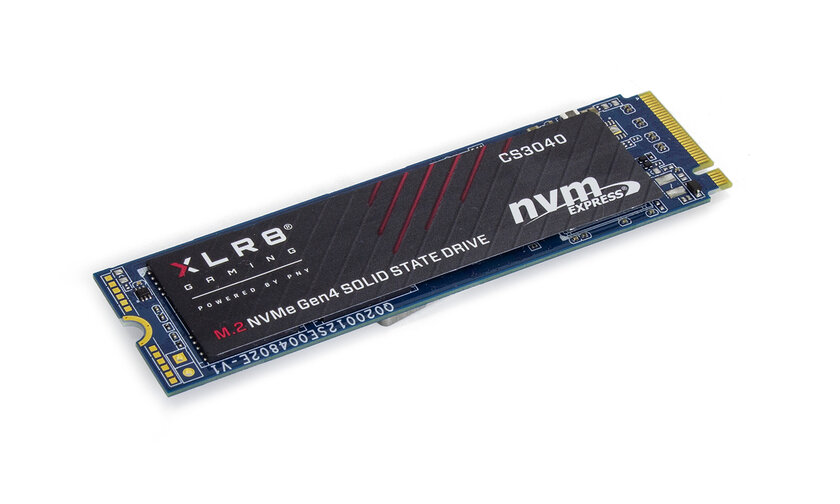
On both sides of the case, the microcircuits are covered with stickers: on the front – “decorative”, on the back – with technical characteristics.


It is worth noting that PNY has a version with a rather large black heatsink.
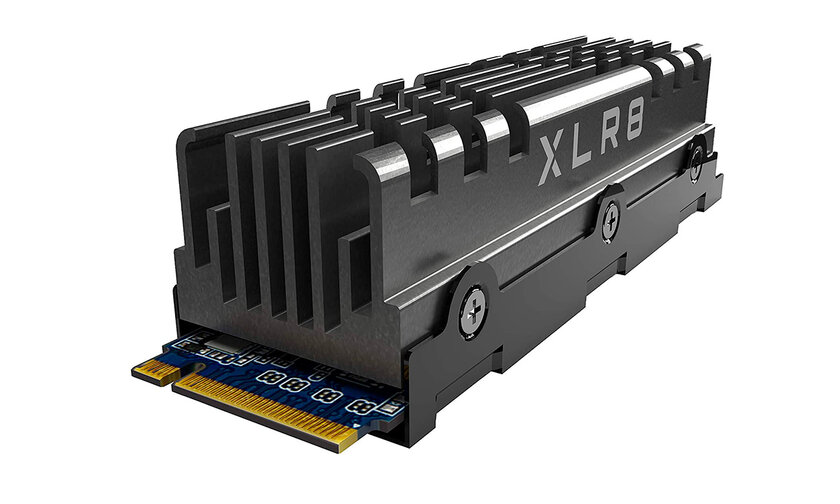
It looks much more impressive, and, given the “appetites” of fast SSDs, a useful addition (unlike the same RAM).
Design features
Under the stickers on the front of the XLR8 CS3040, you can see the controller, DRAM buffer, and two of the four NAND chips. On the back are the remaining two NAND memory chips and the second DRAM buffer chip.


The latter is 96-layer 3D TLC memory from Toshiba BiCS4.
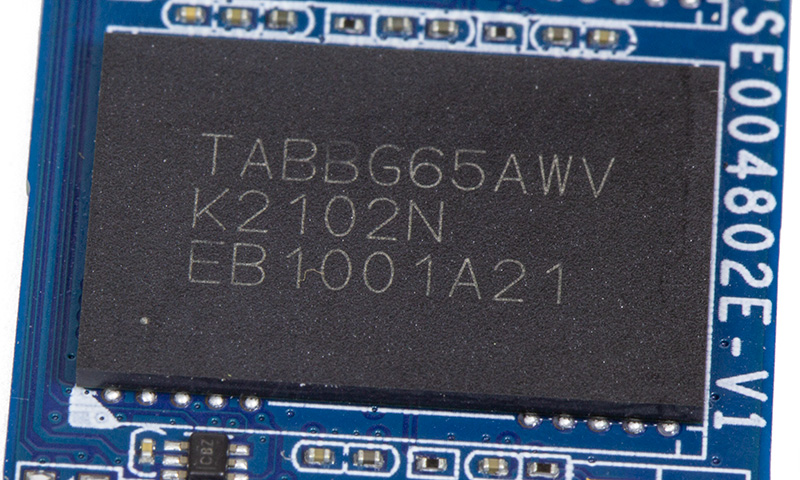
Controller – Phison PS5016-E16.
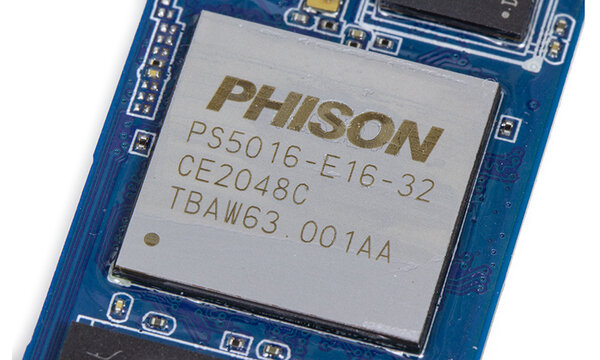
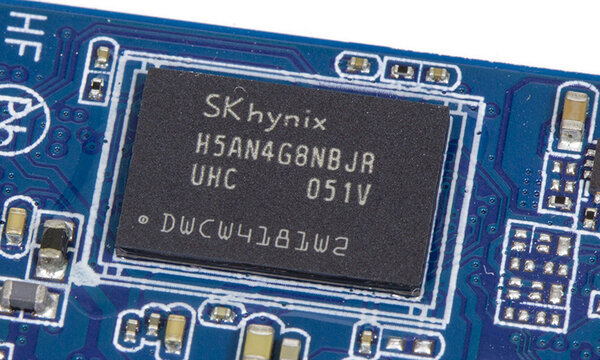
Inside is a quad-core processor, the ability to connect NAND-memory via eight channels, there is support for PCI Express 4.0. Initially, the declared maximum read and write speeds were 5000/4400 MB / s, respectively, but that was almost three years ago, so PNY’s declared read speed of 5600 MB / s does not seem to be something fantastic. Moreover, the E16 model is focused on high-speed SSDs, and in some way is the “flagship” in this line (there is E19 for the “budget” sector). Moreover, an external DDR4 buffer… Looks promising.
Test results
The drive installed in the motherboard based on the H670 chipset was detected without any problems and connected to the Intel Core i7-12700K processor via the fourth version PCIE bus.
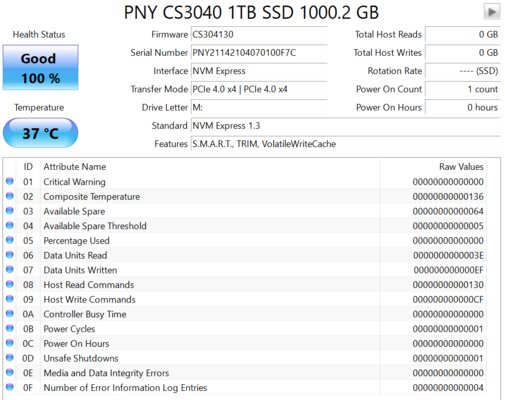
The very first run of Crystal Disk Mark showed a sequential read speed of 5011 MB / s, which is somewhat less than the declared 5600. For writing, the required 4400 MB / s was issued without problems.
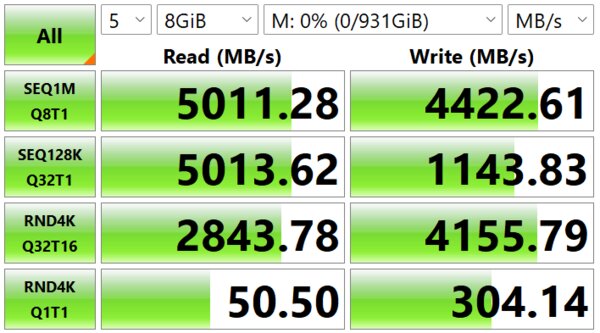
More realistic AS SSD readings showed sequential read / write speeds of 3011 and 2991 MB / s.
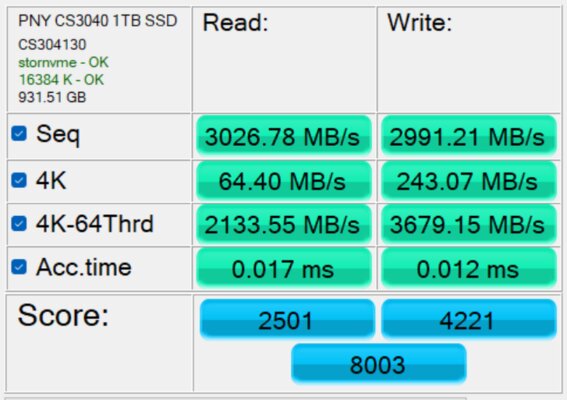
This is much less than the Crystal Disk Mark, but the figure is stable, as you can see from the graph drawn by AIDA64. The average sequential read speed was 2700 MB / s, which is a good result.
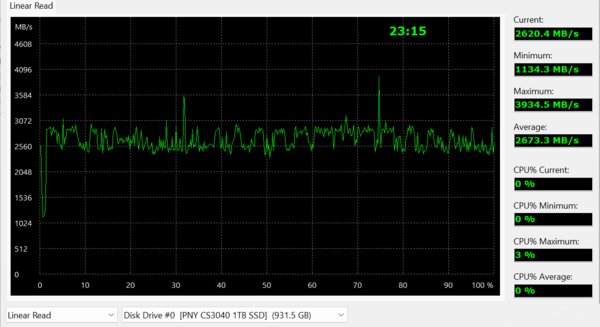
Sequential recording is also good: the “fast” mode has stretched to more than half the volume (and this is more than 500 GB). The average in this section is approximately 1900 MB / s.
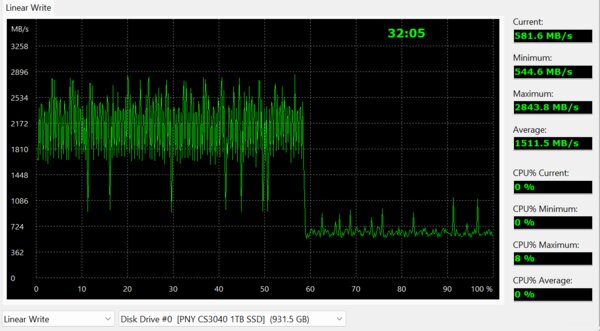
Random reads and writes did not bring significant adjustments to the already existing picture: average 1806 and 1624 MB / s, respectively.
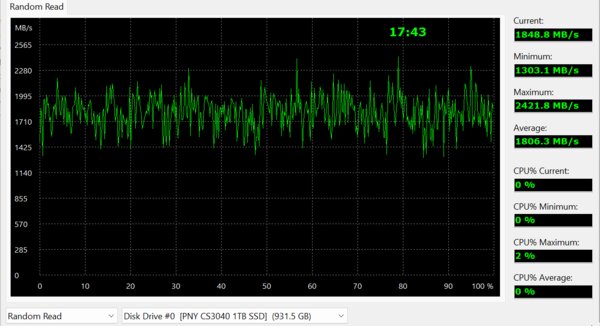
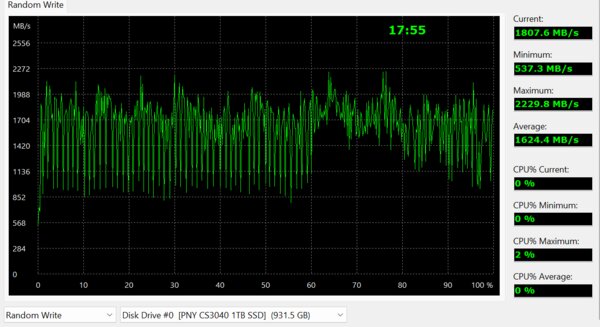
With all the positive picture of characteristics, the XLR8 CS3040 has one caveat – it should not be used without a heatsink. Less than half a minute after the start of the tests, the controller warms up to 82 degrees, and this is at the declared maximum operating temperature of 70 Celsius.
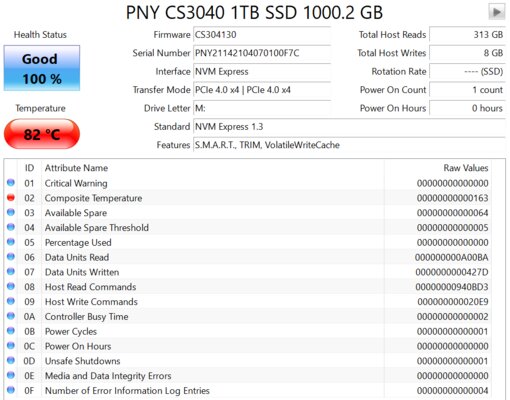
After installing a regular (attached to the motherboard) radiator, the temperature dropped to 57 degrees, and the heat sink even under the fan heated up to 47 degrees. Strong advice for those who decide to purchase this drive: if your motherboard does not have a heatsink for M.2 devices, look for an XLR8 version with a heatsink or purchase an appropriate one in addition.
Review
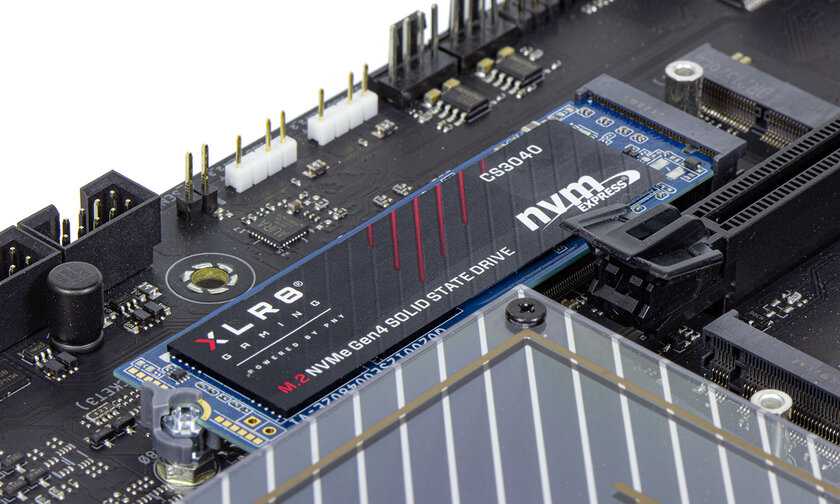
The PNY XLR8 CS3040 SSD is a good terabyte SSD in terms of price/performance ratio. Even if in “real” scenarios he did not give out the declared speeds, but by modern standards he is fast. XLR8 CS3040 can be recommended as a system storage or large file swap in modern configurations. However, on a motherboard with support for PCI Express version 3, it will give good performance. The main thing is not to forget about the radiator.
pros
- Stable and high read/write speeds.
- Great resource.
- Democratic price.
Might not like it
- Significant heating without heatsink.
Source: Trash Box
I am Joyce Corbett and I have been working in the news industry for over 10 years. My current role is as an author at World Stock Market, where I focus primarily on the tech section. My specialty is creating engaging content that helps to explain and demystify complex financial topics.






